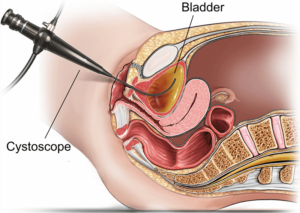When Painful Stinging is More Than Just a UTI
Often mistaken for a urinary tract infection (UTI), Interstitial Cystitis is a painful bladder condition which leads to trouble voiding (urination) among other pelvic symptoms. It’s often self-diagnosed as it mimics symptoms of a UTI. A great example is the symptom of painful stinging on urination. This appears both in recurrent UTI’s and Interstitial Cystitis. Hence why it is super important to see your uro/gynaecologist for a formal opinion.
We have treated interstitial cystitis in women as young as 23, and more often in women aged 45+.
Painful Urination is Just The Beginning:
- Recurring UTIs (Urinary Tract Infection)
- A constant need to void (pass urine) without the bladder ever really feeling empty
- Painful stinging on urination
- The sensation of ‘bladder spasm’
- Difficulty when trying to void – such as a slow output or flow and having to strain to bring on urination.
- The need to void often, particularly during the night. This often leads to interrupted sleep.
Diagnosing Interstitial Cystitis
Dr Elgey can diagnose and treat Interstitial Cystitis in a simple day procedure at Sunnybank Private Hospital, performing a Cystoscopy. Prior to surgery we asked that you be referred by your GP to Dr Elgey for a gynaecological consultation where you can discuss your symptoms with Dr Elgey and organise for a day procedure if necessary.
A Cystoscopy is a non-invasive day surgery to which can diagnose and investigate for Interstitial Cystitis. This procedure is quick and is available to both private and public patients.
What Does a Cystoscopy Involve?
Under sedation, a flexible cystoscope is inserted into the urethra to look at the interior lining of the bladder and the urethra (the tube that drains urine from the bladder to the outside). A contrast dye is gently inserted into the ureters to assess for Interstitial Cystitis.
Dr Elgey will use the cystoscope to take operative photos and will discuss his findings with you on waking. A post-operative appointment two to four weeks post-surgery will be scheduled to discuss the outcome and what are Dr Elgey recommendations if you are diagnosed with Interstitial Cystitis.
What Can I Expect During The Recovery of a Cystoscopy?
- You may notice blood in the urine for a day or two after cystoscopy.
- You may notice mild burning and stinging when passing urine for a day or two after cystoscopy.
- If you have a sedation, general anaesthetic, or spinal anaesthetic, you can usually return to work one to two days after the procedure.
- If you have sedation, general anaesthetic, or spinal anaesthetic, you will not be able to drive for 24 hours after the procedure.
What Alternative Treatment Options Are Available?
Pelvic ultrasound scans and urine tests are an alternative way to investigate problems with the bladder and urethra. Often they aren’t as reliable as directly inspecting your bladder with cystoscopy.








